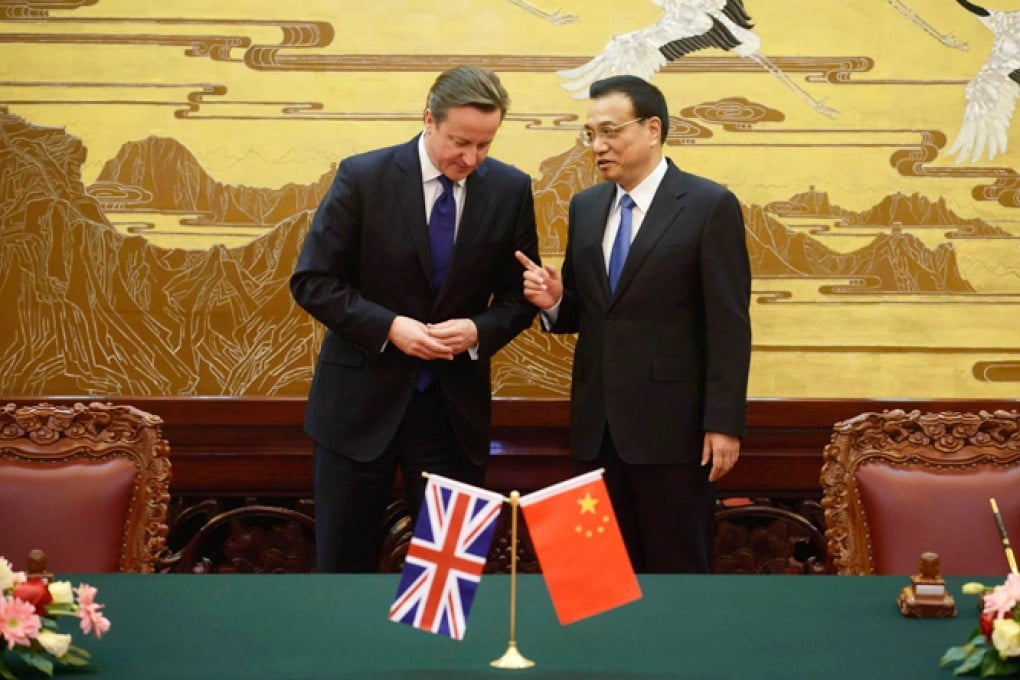British Prime Minister David Cameron backs China to 'realise its dream'
As British prime minister agrees wide-ranging business deals in Beijing, he says two countries can 'help each other succeed in the global race'

Premier Li Keqiang and British Prime Minister David Cameron oversaw the signing of business deals yesterday ranging from high-speed rail projects to nuclear power, while leaving contentious human rights issues on the sidelines.
Cameron's second visit to Beijing - accompanied by Britain's largest ever business delegation to China, with 130 members - marked the full reconciliation of Sino-British ties after Cameron's controversial meeting with the Dalai Lama last year.
In a meeting at the Diaoyutai State Guesthouse, President Xi Jinping told Cameron he hoped the two countries would "transcend differences in their conditions, institutions and values" and deepen mutual understanding.
Xinhua quoted Xi as saying: "[Both sides] should take into account each other's major concerns and core interests, enhance mutual trust and chart the future of relations."
Xi also said he hoped London would be more open to economic co-operation.
Video: UK's Cameron focuses on business during China visit